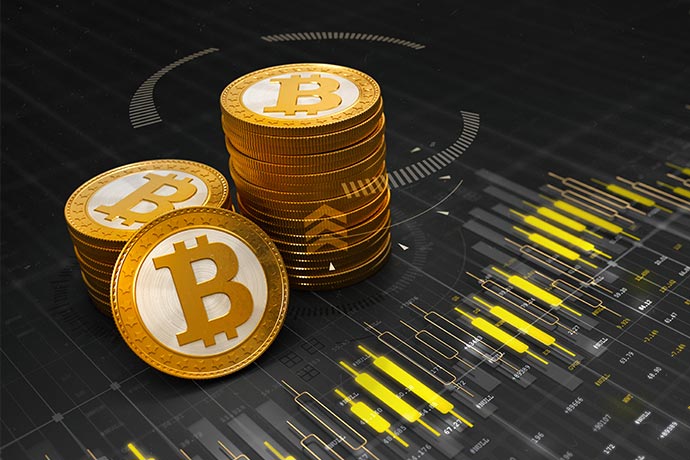Blockchain technology and cryptocurrencies have brought a wave of innovation, but the regulatory landscape surrounding these technologies is still evolving and can be quite complex. Regulatory environments across the globe are in flux, with governments constantly adjusting their stances on blockchain and cryptocurrency, making it challenging for blockchain projects to remain compliant while scaling and innovating.
In this article, we will discuss how blockchain projects can navigate and thrive in this dynamic regulatory environment while ensuring compliance. We will explore the key challenges, strategies for staying compliant, and best practices for operating in jurisdictions with varying regulatory requirements.
1. Understanding the Regulatory Challenges for Blockchain Projects
Blockchain projects face several challenges when it comes to compliance. These include:
1.1 Jurisdictional Variability
Different countries and regions have vastly different approaches to blockchain technology, cryptocurrencies, and related assets. While some countries like Japan and Switzerland have progressive, clear regulations, others like China and India maintain stricter restrictions. For instance:
- In the United States, the regulatory framework is fragmented, with various agencies like the SEC (Securities and Exchange Commission), CFTC (Commodity Futures Trading Commission), and IRS (Internal Revenue Service) having differing views on how blockchain technologies and cryptocurrencies should be classified and taxed.
- In the European Union, while MiCA (Markets in Crypto-Assets) aims to harmonize regulations, individual member states may still have their own specific rules.
- In China, cryptocurrencies face strict bans, whereas blockchain is actively being developed for non-cryptocurrency applications, such as the Digital Yuan.
1.2 Evolving Regulations
As blockchain and cryptocurrency technology rapidly evolve, regulators often struggle to keep up. Laws and regulations are continuously being revised or introduced, which can create uncertainty for blockchain projects. This rapid pace of change requires businesses to stay informed and agile.
For example:
- ICO regulations are being tightened globally as many countries, like the U.S. and South Korea, have introduced or proposed new rules on Initial Coin Offerings.
- Privacy regulations such as the European Union’s GDPR (General Data Protection Regulation) impact how blockchain projects can handle personal data, especially when using decentralized technologies where data is immutable.
1.3 Complex Compliance Demands
Blockchain projects often need to comply with multiple regulatory frameworks, including:
- Anti-Money Laundering (AML) regulations
- Know Your Customer (KYC) requirements
- Data privacy laws like GDPR
- Securities laws if their tokens are classified as securities
- Tax compliance for the treatment of cryptocurrencies as taxable assets or income.
Each regulation may have different documentation, reporting, and operational requirements, increasing the burden on blockchain projects to stay compliant.
2. Key Strategies for Achieving Compliance in a Changing Regulatory Landscape
Blockchain projects must take proactive steps to navigate the shifting regulatory environment effectively. Here are some key strategies for ensuring compliance:
2.1 Engage Legal and Compliance Experts
Blockchain projects should hire or consult with legal and regulatory experts who specialize in cryptocurrency and blockchain technology. These experts can provide insight into the legal requirements specific to the jurisdictions the project operates in. A legal team can:
- Interpret the legal implications of blockchain-related activities, such as token issuance or smart contract implementation.
- Monitor regulatory changes at both local and international levels, keeping the project aligned with evolving legal frameworks.
- Develop compliance strategies to address jurisdiction-specific requirements.
Legal and compliance teams can also help with regulatory reporting, assist with KYC/AML compliance, and help to draft clear user agreements, ensuring that the project complies with all legal obligations.
2.2 Implement Strong KYC/AML Protocols
For blockchain projects, especially exchanges or projects involving token issuance, implementing robust KYC (Know Your Customer) and AML (Anti-Money Laundering) protocols is crucial. These measures help identify and verify the identities of users and ensure that the platform is not used for illicit activities such as money laundering, terrorist financing, or fraud.
Key practices include:
- Verifying user identities during the registration process with government-issued IDs.
- Screening transactions against known sanction lists and monitoring for suspicious activity.
- Establishing automated transaction monitoring systems that detect potentially illegal activities.
- Regular audits of compliance procedures to ensure that the KYC/AML practices align with regulatory requirements.
Complying with KYC/AML regulations is often essential for obtaining licenses to operate in various jurisdictions, such as the BitLicense in New York or obtaining a crypto license in other EU countries.
2.3 Adopt a Flexible and Agile Compliance Framework
Given the fast-changing regulatory environment, blockchain projects must maintain flexibility in their compliance frameworks. An agile approach allows projects to adapt quickly to regulatory changes without disrupting operations.
- Compliance as a Service: Outsourcing specific compliance functions, such as tax reporting or transaction monitoring, to third-party providers that specialize in blockchain compliance can allow the project to scale while staying compliant.
- Automated Compliance Tools: Blockchain projects can integrate smart contracts and other tools that automate compliance processes, such as reporting transactions for tax purposes or ensuring that user data handling adheres to GDPR.
Staying agile also means regularly updating internal policies to match the evolving legal environment. Projects should stay aware of any changes to existing regulations and be prepared to adjust processes accordingly.
2.4 Implement Robust Data Protection and Privacy Measures
Regulations like GDPR in Europe have significantly impacted blockchain-based projects, especially those that handle personal data. Since blockchain inherently stores data in an immutable and distributed manner, ensuring data privacy and compliance with data protection laws can be particularly challenging.
To stay compliant:
- Blockchain projects can encrypt sensitive data and limit the use of personal data stored on-chain.
- Ensure that all personal data is handled according to data minimization principles—only collecting and processing what is absolutely necessary.
- Use privacy-focused technologies like zero-knowledge proofs (ZKPs) to protect user data while still providing the transparency required by blockchain.
Projects should work closely with privacy experts to ensure that they comply with local and international data protection regulations, especially when users’ personal information is involved.
2.5 Ensure Transparent and Clear Token Issuance
If a blockchain project plans to issue tokens, whether via Initial Coin Offerings (ICOs), Security Token Offerings (STOs), or Initial DEX Offerings (IDOs), clear legal guidance is essential to determine if the tokens qualify as securities or utility tokens under local laws.
- Determine Token Classification: In many jurisdictions, such as the U.S., the SEC determines whether a token is a security using the Howey Test. If it’s classified as a security, it will be subject to more stringent regulatory requirements.
- Disclose Risks: Transparent and comprehensive whitepapers and token offerings that clearly outline the risks, utility, and purpose of the token can mitigate legal risks and improve trust with regulators and investors.
Engaging with regulators early and obtaining legal advice before launching a token sale can save the project from unnecessary fines, litigation, and reputational damage.

3. Best Practices for Blockchain Projects to Stay Compliant
Beyond the core strategies discussed above, blockchain projects can follow these best practices to ensure long-term compliance and reduce the risk of regulatory issues:
3.1 Stay Informed About Regulatory Developments
Blockchain projects must dedicate resources to monitoring the regulatory landscape. This includes:
- Following updates from key regulatory bodies such as the SEC, European Commission, FinCEN, and FATF.
- Joining industry groups or trade associations that offer insights on regulatory issues affecting blockchain and crypto.
- Participating in forums or collaborations with regulators to stay ahead of potential rule changes.
3.2 Focus on User Education and Transparency
Educating users about the platform’s compliance practices and how they align with relevant regulations is crucial. Users should clearly understand how their personal data is being handled, how transactions are processed, and the associated risks of using blockchain-based platforms.
- Providing easy-to-understand privacy policies and terms of service that outline the platform’s legal obligations can help build trust.
- Offering tools or tutorials on how users can comply with the platform’s KYC/AML requirements.
3.3 Collaborate with Regulators and Policy Makers
Rather than adopting a confrontational approach, many blockchain projects can benefit from collaborating with regulators. By engaging with regulators early, projects can help shape the regulatory environment in ways that are conducive to blockchain innovation while ensuring compliance.
- Offering input during public consultation periods or working with legal teams on pilot projects can build goodwill with regulators and help develop favorable regulations.
4. Conclusion
Blockchain projects must be adaptable, informed, and proactive to successfully operate in a rapidly changing regulatory landscape. By implementing strong compliance mechanisms, staying agile in the face of regulatory changes, and engaging with legal experts, blockchain projects can ensure they stay compliant while still innovating.
As blockchain continues to disrupt traditional industries, it is essential for projects to stay ahead of regulatory changes, implement best practices in security, data privacy, and KYC/AML compliance, and work closely with regulators to help shape the future of the blockchain space. This holistic approach will not only help projects avoid regulatory pitfalls but will also help build trust with users, regulators, and the broader market.













































